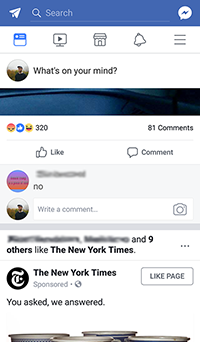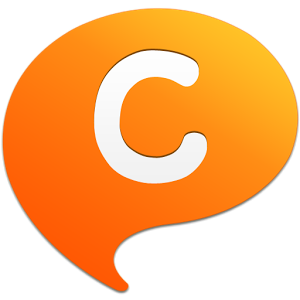Mobile app development is the act or process by which a mobile app is developed for one or more mobile devices, which can include personal digital assistants (PDA), enterprise digital assistants (EDA), or mobile phones. Such software applications are specifically designed to run on mobile devices, taking numerous hardware constraints into consideration. Common constraints include CPU architecture and speeds, available memory (RAM), limited data storage capacities, and considerable variation in displays and input methods. These applications can be pre-installed on phones during manufacturing or delivered as web applications, using server-side or client-side processing to provide an "application-like" experience within a web browser.

The mobile web comprises mobile browser-based World Wide Web services accessed from handheld mobile devices, such as smartphones or feature phones, through a mobile or other wireless network.

Bing for mobile is a search tool for handheld mobile devices from Microsoft as part of their Bing search engine. It is designed for mobile device displays. Bing Mobile is built into Windows Mobile and Windows Phone as proprietary software, accessed via the Search key on Windows Phone 7 and Windows Phone 8 devices. It is also available on Windows Phone 8.1, and can be downloaded for other platforms, including and Android.

Mobile social networking is social networking where individuals with similar interests converse and connect with one another through their mobile phone and/or tablet. Much like web-based social networking, mobile social networking occurs in virtual communities.

Geosocial networking is a type of social networking in which geographic services and capabilities such as geocoding and geotagging are used to enable additional social dynamics. User-submitted location data or geolocation techniques can allow social networks to connect and coordinate users with local people or events that match their interests. Geolocation on web-based social network services can be IP-based or use hotspot trilateration. For mobile social networks, texted location information or mobile phone tracking can enable location-based services to enrich social networking.

Ovi was the brand for Nokia's Internet services from 2007 to 2012. It was designed to be an umbrella brand as Nokia attempted to expand into software and Internet services instead of just mobile hardware. Ovi focused on five key service areas offered by Nokia: Games, Maps, Media, Messaging and Music.
The Facebook Platform is the set of services, tools, and products provided by the social networking service Facebook for third-party developers to create their own applications and services that access data in Facebook.
MobileMe is a discontinued subscription-based collection of online services and software offered by Apple Inc. All services were gradually transitioned to and eventually replaced by the free iCloud, and MobileMe ceased on June 30, 2012, with transfers to iCloud being available until July 31, 2012, or data being available for download until that date, when the site finally closed completely. On that date all data was deleted, and email addresses of accounts not transferred to iCloud were marked as unused.

Rockmelt is a discontinued proprietary social media web browser developed by Tim Howes and Eric Vishria based on the Google Chromium project, incorporating social media features such as Facebook chat, Twitter notifications and widgetised areas for other content providers such as YouTube and local newspapers. The Rockmelt web browser project was backed by Netscape founder Marc Andreessen. In April 2013, Rockmelt discontinued its desktop web browser, replacing it with a collaborative project bringing together social elements from various sources.

The BOLT Browser was a web browsing system for mobile phones including feature phones and smartphones able to run Java ME applications. The BOLT browser was installed on the phone, and BOLT servers accessed Web pages, processed and compressed them, and delivered them to phones running the browser. The BOLT Browser was offered free of charge to consumers, and by license to mobile network operators and handset manufacturers. BOLT was produced by Bitstream Inc., the company which previously produced ThunderHawk for mobile network operators and handset manufacturers. BOLT was originally introduced into private beta on January 15, 2009 and was made available to the public on February 16, 2009 when the public beta was announced at Mobile World Congress in Barcelona. BOLT supported Java-based handsets with Java MIDP 2 and CLDC 1.0 or higher. BOLT also has specially optimized version for BlackBerry smartphones and worked with Windows Mobile and Palm OS devices that employ a MIDlet manager or Java emulator. BOLT was built using the WebKit rendering engine to display a full Web page layout as found on desktop web browsers.
Flipboard is a news aggregator and social network aggregation company based in Palo Alto, California, with offices in New York, Vancouver, and Beijing. Its software, also known as Flipboard, was first released in July 2010. It aggregates content from social media, news feeds, photo sharing sites, and other websites, presents it in magazine format, and allows users to "flip" through the articles, images, and videos being shared. Readers can also save stories into Flipboard magazines. As of March 2016 the company claims there have been 28 million magazines created by users on Flipboard. The service can be accessed via web browser, or by a Flipboard application for Microsoft Windows and macOS, and via mobile apps for iOS and Android. The client software is available at no charge and is localized in 21 languages.
Amazon Drive, formerly known as Amazon Cloud Drive, was a cloud storage application managed by Amazon. The service offered secure cloud storage, file backup, file sharing, and Photo printing. Using an Amazon account, the files and folders could be transferred and managed from multiple devices, including web browsers, desktop applications, mobiles, and tablets. Amazon Drive also let their U.S. users order photo prints and photo books using the Amazon Prints service.
A mobile application or app is a computer program or software application designed to run on a mobile device such as a phone, tablet, or watch. Mobile applications often stand in contrast to desktop applications which are designed to run on desktop computers, and web applications which run in mobile web browsers rather than directly on the mobile device.
Bitcasa, Inc. was an American cloud storage company founded in 2011 in St. Louis, Missouri. The company was later based in Mountain View, California until it shut down in 2017.

ChatON was a global mobile communication service provided by Samsung Electronics from September 2011 to March 2015.
Mozilla is a free software community founded in 1998 by members of Netscape. The Mozilla community uses, develops, publishes and supports Mozilla products, thereby promoting exclusively free software and open standards, with only minor exceptions. The community is supported institutionally by the non-profit Mozilla Foundation and its tax-paying subsidiary, the Mozilla Corporation.
WebAR, previously known as the Augmented Web, is a web technology that allows for augmented reality functionality within a web browser. It is a combination of HTML, Web Audio, WebGL, and WebRTC. From 2020s more known as web-based Augmented Reality or WebAR, which is about the use of augmented reality elements in browsers.

Puffin Browser is a remote browser developed by CloudMosa, an American mobile technology company founded by Shioupyn Shen.







